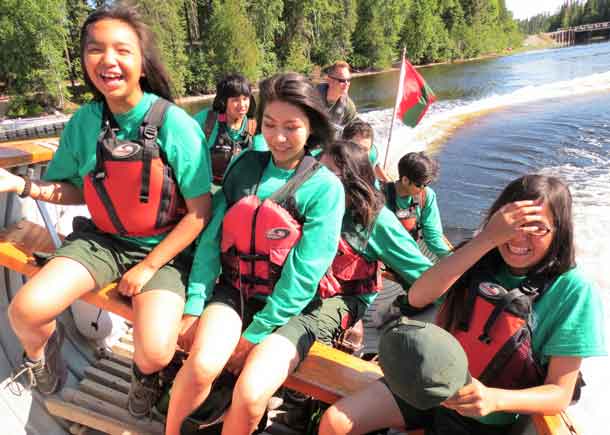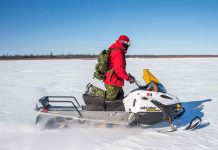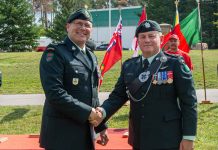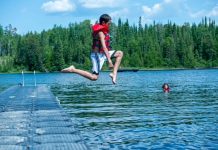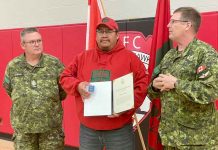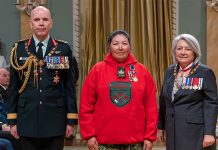CAMP LOON – Junior Canadian Rangers attending this year’s annual Camp Loon will learn valuable life skills and have “a great time,” according to the Canadian Army officer commanding the Junior Rangers across the Far North of Ontario.
“They are going to go home with a lot of valuable knowledge and with a lot of good memories,” said Captain John McNeil.
The camp is held in the bush on Springwater Lake, 50 kilometres north of Geraldton, and will provide a week of advanced training for an anticipated 164 Junior Rangers from 21 remote and isolated Cree, Oji-Cree and Ojibway First Nation communities, most of them without year-round road access. The camp stresses safety on the land and water and in personal lifestyles and has been held annually since 2000.
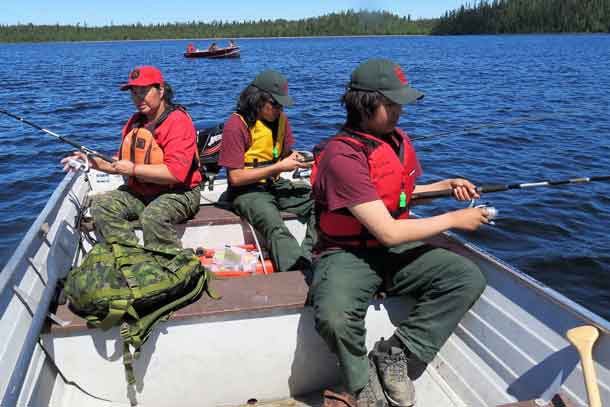
The camp’s opening ceremony will be on Tuesday, July 17 and it closes on Monday, July 23. Charter aircraft will transport the Junior Rangers to and from the site.
The Junior Rangers are a national youth program run by the Canadian Armed Forces for boys and girls aged 12 to 18 in Canada’s remote and isolated regions. There are 1,000 Junior Rangers in Northern Ontario.
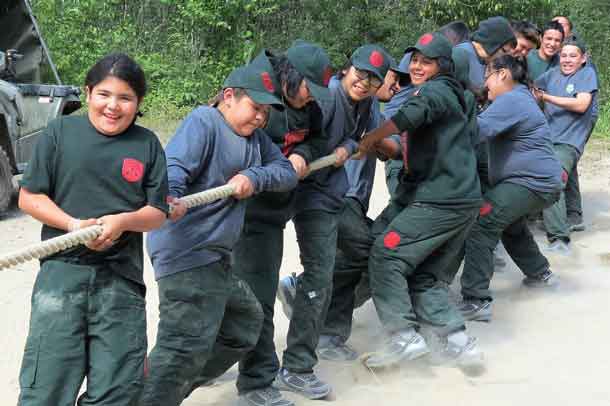
Camp Loon provides a range of training activities that are not normally available to Junior Rangers in their small home communities They include specialized instruction in shooting (both rifle and paintball), boating (power boats and paddle canoes), driving all-terrain vehicles, teaching how to swim-to-survive, mountain biking, archery, lacrosse, and traditional arts and crafts.
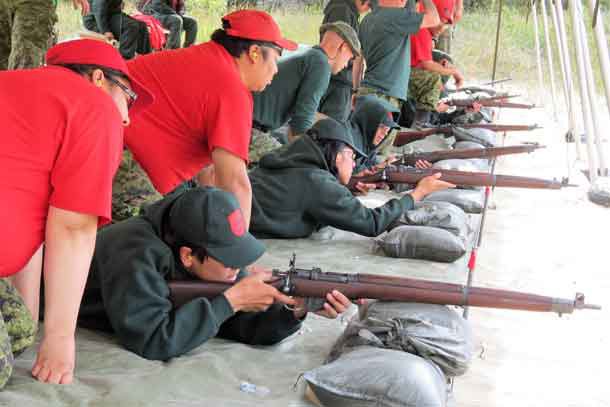
”We always try to refine the activities at the camp to keep the training interesting for the Junior Rangers, to keep them engaged, to keep them challenged, and to make it relevant to their lives,” Captain McNeil said “This year we are running an emergency first aid course for them that will qualify them to receive a certificate from St. John Ambulance.
“The training will give Junior Rangers the ability not to panic in a situation and provide them with rudimentary levels of first aid to hopefully prevent further injury. It will allow them to react calmly and know that if there is someone else is around to get them to get help while they attend to the wounded.
“The chances of someone being in a remote area with only one or two people around during a hunting or other kind of incident are very likely for these kids. We want to help them cope in that kind of situation.”
One of the most popular features of Camp Loon is the food prepared by a mobile military kitchen. The military cooks go out of their way to provide the Junior Rangers with treats that are rarely available in their remote communities.
The camp staff of 101 will include Canadian Rangers and regular and reserve members of the Canadian Armed Forces. Some of the Canadian Rangers will have attended the camp when they were Junior Rangers.

